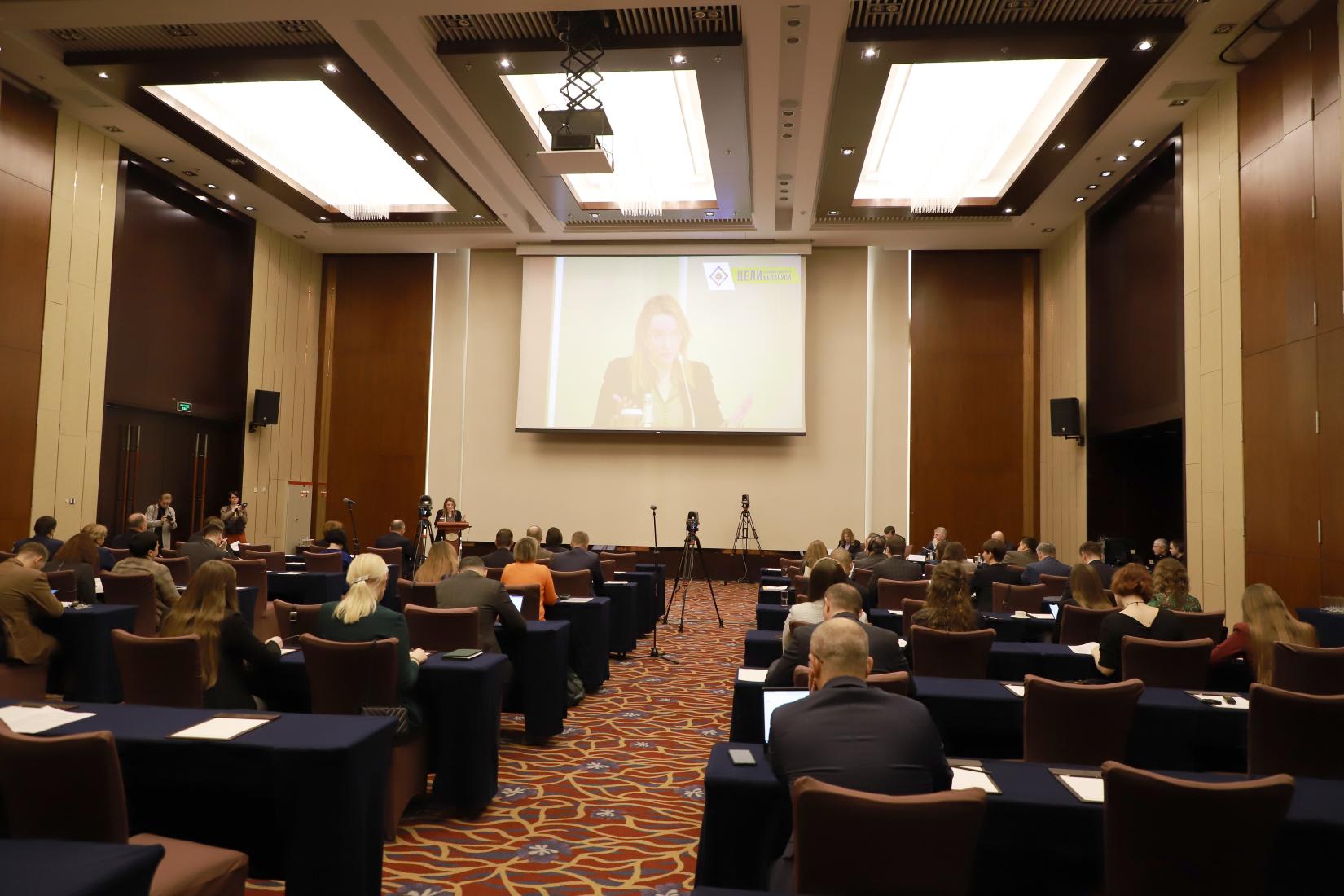Council for Sustainable Development Focuses on Women’s Rights
Council for Sustainable Development met to discuss report on implementation of the Convention on the Elimination of All Forms of Discrimination against Women
The Government representatives and the UN agencies in Belarus participated today in the meeting of the Council for Sustainable Development in Minsk to discuss the draft version of the ninth periodic report of the Republic of Belarus on the implementation at the national level of the Convention on the Elimination of All Forms of Discrimination against Women.
Yury Ambrazevich, Deputy Minister of Foreign Affairs of the Republic of Belarus and Joanna Kazana-Wisniowiecki, the UN Resident Coordinator addressed the Council with welcoming remarks.
Elimination of discrimination against women is one of the United Nations’ strategic priorities. Growing gender inequalities as the result of COVID-19 consequences, economic and security crises and nature disasters are aggravating the women’s rights worldwide.
Speaking at the meeting, the UN Resident Coordinator in Belarus emphasized that Gender Equitable Society is one of the four pillars of the agreed UN-Belarus Cooperation Framework for 2021-2025.

Joanna Kazana-Wisniowiecki underlined that Belarus ranks 36th among 146 countries in the Global Gender Gap Index and achieved good progress on gender equality.
The UN country team welcomes initiatives undertaken by Belarus to address domestic violence and human trafficking, promote gender equality and other rights of women enshrined in the Convention on the Elimination of All Forms of Discrimination against Women, along with improvements made related to the increased availability of the gender-disaggregated data.
To achieve a fully gender-equitable society, UN calls for focusing on four strategic areas of priority. Expanding further women’s economic opportunities, balancing home and care responsibilities, strengthening the system to address gender-based violence and combating gender stereotypes -- such change will accelerate the process towards equality in Belarus.
“These goals can be achieved by removing a number of systemic bottlenecks preventing the further promotion of gender equality in Belarus.The lack of specific legislation on domestic violence, the lack of legal definition of discrimination; challenges with enforcement of laws and by-laws; relatively weak capacity of existing institutions dealing with gender equality issues are some of the priority concerns”, the UN Resident Coordinator in Belarus said.
The UN Representative added also that the continuing absence of CSOs and women activists specialising in the area of women’s rights creates a serious capacity gap to address the needs of vulnerable women and families. United Nations agencies act as key partners supporting implementation of the National Action Plan to Ensure Gender Equality in the Republic of Belarus for 2021-2025.
The UN system in Belarus implements a range of programmes on introduction of gender responsive budgeting and helps collect disaggregated data on gender impact of domestic policies and programmes. The programmes give particular attention to the needs of elderly women and men of 65+. Policy advice and capacity support is offered to institutions working with gender-based violence.
Head of UNFPA Office in Belarus Olga Atroshchanka in her speech broached the subject of gender stereotypes in the society that prevent men from being fully involved in taking care for their families and children.
She also noted that the importance of crisis centres for people experiencing hardship, however in the last two years a range of services of family violence prevention and victim assistance has decreased as a result of significantly reduced number of non-governmental organizations acting in this field. Unfortunately, the national helpline that had been providing free counselling services over the years for people suffering from any types of violence, no longer works.
The head of UNFPA Office also pointed out the articles in the Criminal Code that criminalize HIV transmission; and women are the ones who suffer most from these articles. Application of these articles involves criminal prosecution of HIV transmission and often entails manipulations, intimidation and violence against HIV-positive women from their male partners. According to Olga Atroshchanka, a system approach is needed to address this problem using the expertise of governmental, non-governmental and international organizations.
Deputy Resident Representative of UNDP in Belarus Armen Martirosyan informed the Council members on the progress of implementation of the project aimed at supporting the National Strategy for Sustainable Development of the Republic of Belarus for the period up to 2035 and 2030 Agenda.
The project, funded by the Russian Federation, with a total budget of three million US dollars is being jointly implemented by the UN Development Program, United Nations Children's Fund, UN Population Fund, World Health Organization.
In partnership with the Belarusian Ministry of Economy, the project will support regional executive committees and local communities to develop local sustainable development strategies.
Educational programs for sustainable development will also be developed and implemented as well as an awareness campaign to promote sustainable development principles and ideas on both national and regional levels.
The Council for Sustainable Development headed by the National Coordinator for Achievement of Sustainable Development Goals is an advisory body that unites the representatives of 38 governmental organizations, parliamentary group, non-governmental associations and SDG Youth Ambassadors as well as the UN Country Team in Belarus.




